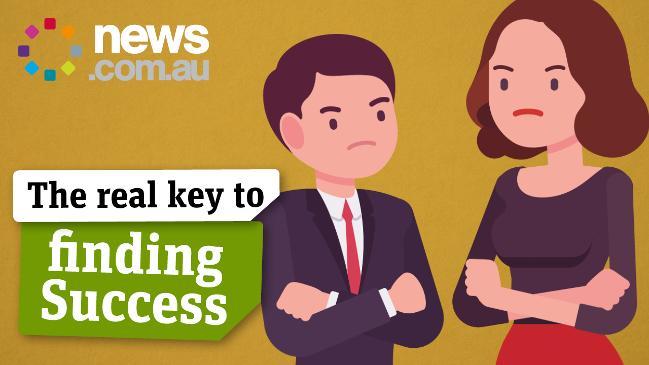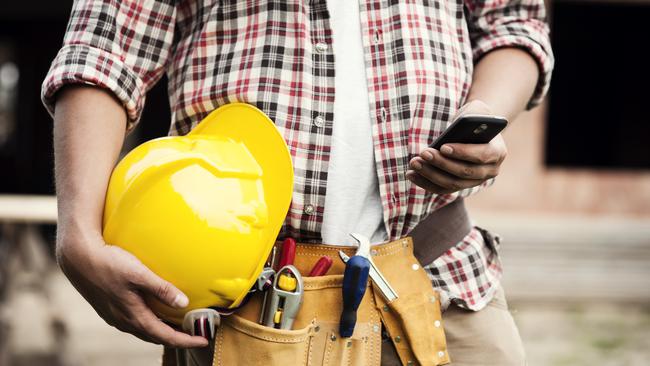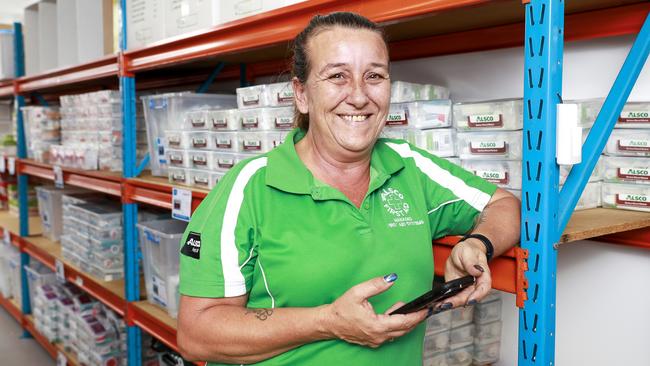Australian frontline workers paying to stay safe on the job
Australia’s frontline workers are digging deep for a cost they should never have had to cover, new research shows.

Careers
Don't miss out on the headlines from Careers. Followed categories will be added to My News.
Australia’s frontline workers are being forced to spend their own money to stay safe on the job, alarming new research reveals.
A SafetyCulture report shows workers are spending an average $928 each year on safety items, representing more than a week’s pay for those on the minimum wage.
The research also finds one in three Aussie frontline workers have experienced a workplace injury due to inadequate workplace safety processes or communication.
SafetyCulture general manager Sam Byrnes says the findings, which show 58 per cent of frontline workers have had to shell out their own money on safety gear, spending a collective $3.67bn this year alone, are “pretty rough’’.
“There’s no excuse for it,’’ he says.
“A thousand bucks a week is pretty much a week’s wage for frontline workers. The quantity of money (workers need to spend on safety) is huge.”
Long-term problem
Safety has been a long-time concern among frontline workers, such as those who work in hospitality, retail, manufacturing, healthcare and logistics, Byrnes says.
He says workers are often forced to buy their own first aid kits, safety glasses, safety clothing and boots and Covid testing kits – not because companies won’t provide them, but rather red tape and “clunky” procurement processes are stopping workers getting them in a timely manner.
“I don’t think (companies) are maliciously expecting workers to fund their own safety,” Byrnes says. “It’s just there’s a lot of red tape to go through.
“Workers might need to put in a request (for a safety item) then get it approved (before it can be supplied). Or they might have only had their boots for six months and they’re supposed to last longer.
“So they’re buying stuff themselves, out of frustration (over delays to get items through their employer).”

He says businesses will be shocked at the report findings but expects improvements to be slow.
“I don’t expect this to go away,” Byrnes says. “Life should be getting easier for our frontline workers and yet we’re seeing a growing expectation for them to do more, with less, and putting themselves at risk. The ones who do have the money can go out and get the things they need – albeit they shouldn’t have to. But what about the ones that don’t have that money and are more likely to have to go without?”
What the law says
The law states very clearly that employees should not be required to spend their own money to protect their health and safety at work – even if they are reimbursed later, industrial law barrister Ian Neil SC says.
“Employers have stringent, statutory obligations to take all reasonable, practical steps to ensure the health and safety of their workers and they can’t delegate that responsibility and subcontract it out to the employees themselves,” he says.
He suggests workers who are forced to buy their own safety equipment contact the Fair Work Ombudsman for advice.
Protection comes first for Debbie

Debbie Peacock feels lucky to work for a company that values employee safety.
As a first aid service technician for workplace cleaning service Fresh and Clean, Peacock is required to replenish first aid supplies for businesses, which sometimes brings her into contact with disused needles and other foreign objects.
“If we do need to pick up sharps or things like that from off the ground then we have tongs, we have our normal gloves and then we have sharps (puncture resistant) gloves to prevent an unfortunate needle stick (injury),” Peacock says.
“We also get provided with safety boots, safety glasses, all our PPE gear, our hi-vis shirts and vests and even hard hats, for when we’re working on sites that use overhead cranes and things like that.
“Fresh and Clean are a family-orientated company and they really care about the safety of their employees.”
In addition, Peacock says she is required to attend monthly safety meetings and regularly undertake safety training.
But Peacock believes her company is an anomaly when it comes to worker safety and says two family members, who work elsewhere, are often required to pay for their own safety equipment.
“A lot of companies are just tight,” she says.
“But in my case, it would be extremely difficult if I had to come up with that extra money (to buy safety gear).
“With the ridiculous cost of living today, you need to do whatever it takes to have employment so I would just have to put myself in an unsafe situation (and work without the necessary safety equipment).”
Originally published as Australian frontline workers paying to stay safe on the job


